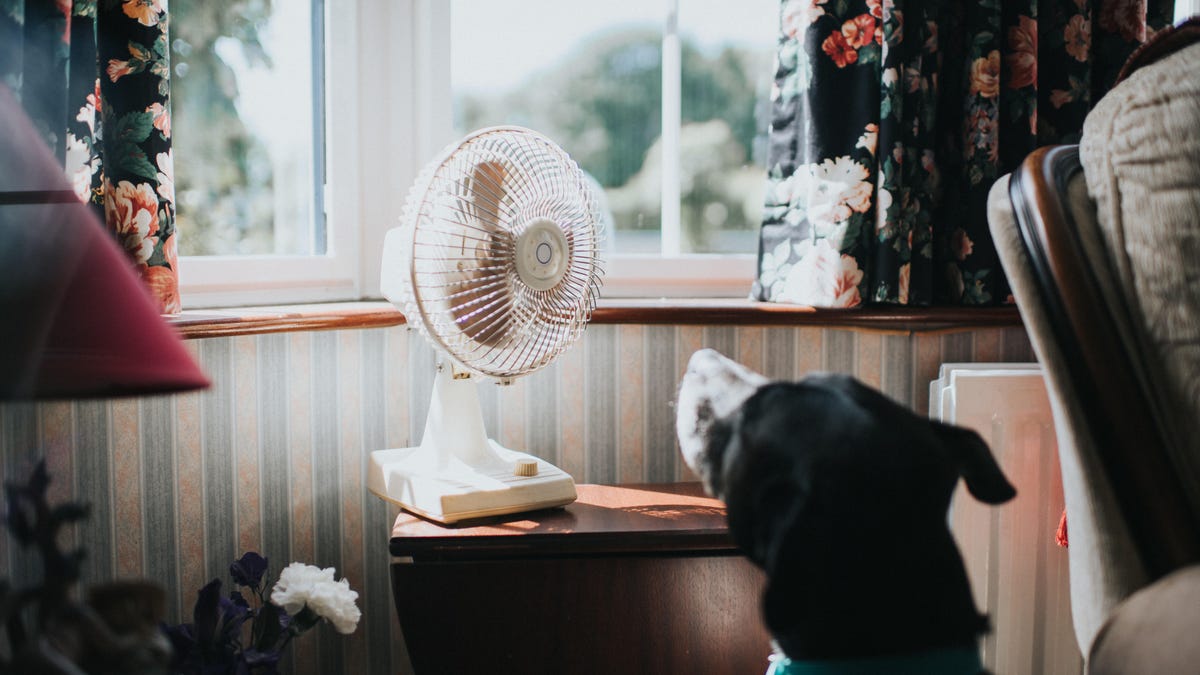5 Signs That It's Time to Replace Your Window Air Conditioner
Does your AC unit just need a good cleaning or is it time for a new one? Here's how to tell.

Is your air conditioner struggling to keep up? It might be time to replace it.
Window air conditioners are pricey -- typically hundreds of dollars. So you definitely want to make sure you get the most out of your current AC unit (including by cleaning it to keep mold away) before paying for another one. But if your air conditioner is struggling to keep you cool during this hot summer, how do you know when it's time to call it?
Below you'll find the five signs that you might need to replace your window air conditioner. If you notice any of these issues, reach out to a repair person to see if it's easily (and, hopefully, cheaply) remedied. If the fix is going to cost a lot of money, it might be better to get a new unit. (You can also check out how to fix a noisy air conditioner, how to save money on air conditioning with this ceiling fan hack and what temperature you should set your thermostat at to save money.)
Read more: Window Air Conditioner Buying Guide: What You Need to Know | Best Window AC Units of 2022
Your window air conditioner is old
On average, window units last around 10 years. That means if your older window unit is acting up in any way or just not performing the way it used to, it's probably time to get a new one.
If you're not quite ready to buy a new window air conditioner, try cleaning it to see if you can get a few additional months or years of life out of the machine. If your window unit is six to eight years old, you could theoretically get at least two more years out of it.
You hear odd noises
It's common to hear the occasional pop or whistle as the window air conditioner turns on and off. However, squealing, grinding, scraping or regular loud bangs and pops could mean there are problems with key parts of the system, according to AC and heating company Chas Roberts. (We've also got tips on how to potentially fix a noisy AC unit here.)
The unit smells, or your home's air quality is bad
Your air conditioner shouldn't smell at all. If you notice bad smells coming from the machine as it operates, there could be a problem. A bad smell can be anything from smoky/burning smells when there's a wiring problem to musty smells that can mean mold or mildew buildup.
Mold and mildew can affect your health and a wiring problem can lead to a fire hazard. As always, reach out to a qualified repair person if you have any questions or concerns about your window air conditioner.
Your bills are going up
A noticeable increase in your electric bills during the months you use the window air conditioner (compared to previous years) is another sign it's time to replace the unit.
A common issue with older AC units is the use of the refrigerant R-22, or freon. Freon was phased out by the EPA because of its environmental impact. That means if you have a leak of refrigerant in systems that use freon, you're out of luck. The EPA set 2020 as a deadline for ending the production and import of this refrigerant.
The window air conditioner keeps breaking
Does your window air conditioner need constant maintenance or repairs just to keep running? If the costs are adding up, it might make more financial sense to put the money toward a new unit.
Is it time for a new air conditioner?
If you find yourself needing to replace the unit, you might wonder if it's worth it to get the same type of machine. Check out our guide on choosing a window air conditioner vs. a portable air conditioner to see which one makes the most sense for you.
And you might be able to get another several months out of your window air conditioner. Sometimes a little cleaning is all a unit needs for some extra life, especially if your unit just smells.
Not sold on a window unit? Learn more about portable air conditioners.